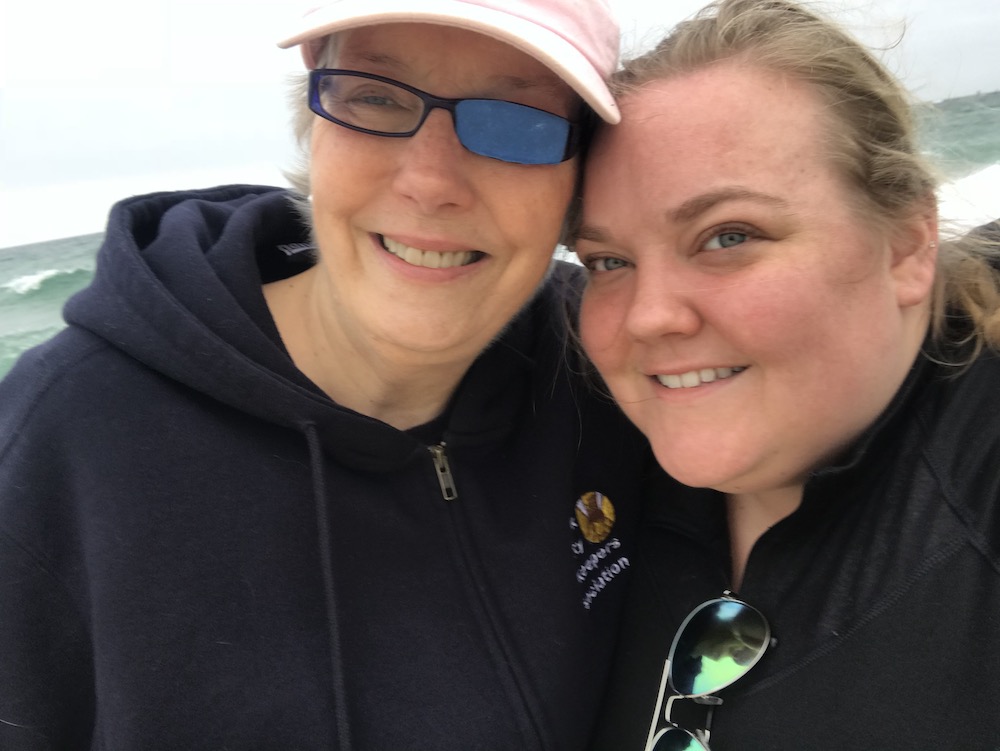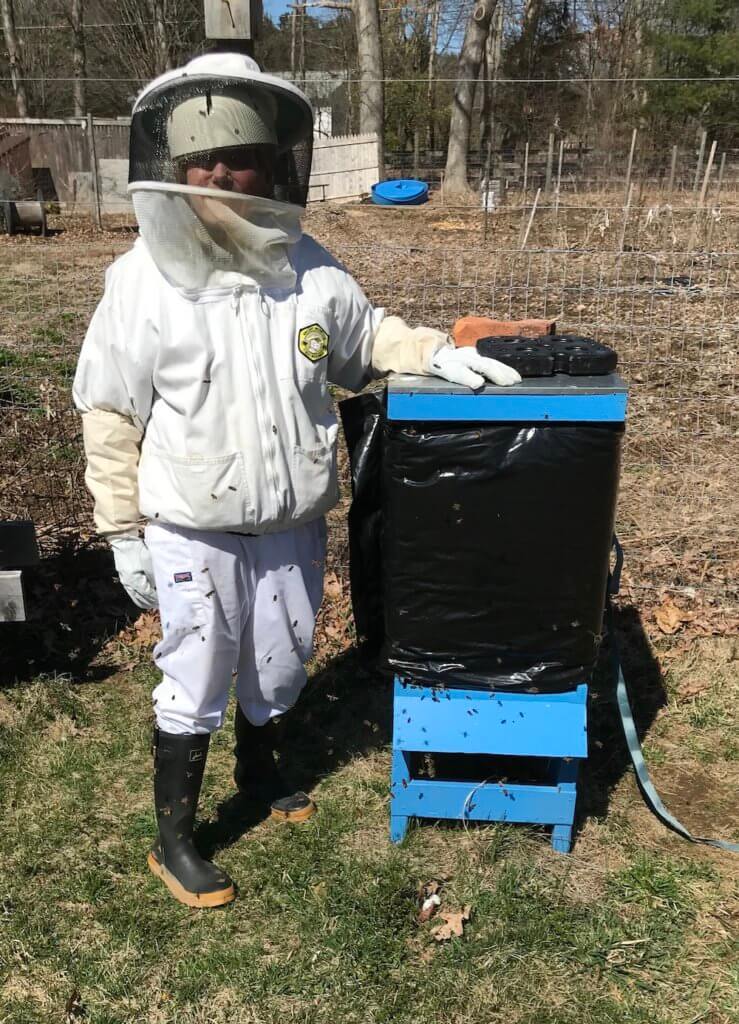Eileen Walther, 66, is not your typical pet owner. While most people may seek the company of a furry, four-legged friend Walther cares for an entirely different type of animal: bees.
For someone who has had to face two separate cancer diagnoses, Walther says her bees provide a great escape — and have helped her overcome the challenges of her intense treatments.
“Early on, I knew I’d always have choices to make,” says Walther. “I get to pick how I want to live my life, and I’ve always made a conscious choice to embrace joy and gratitude.”

Walther’s first cancer diagnosis
In 2017, Walther, 66, was diagnosed with follicular lymphoma, a typically slow-growing form of non-Hodgkin lymphoma that originates in the body’s white blood cells. The diagnosis came as a result of a swollen gland on Walther’s neck, which triggered bloodwork, scans, and ultimately a biopsy.
Following her diagnosis, Walther was placed under the care of Caron Jacobson, MD, an oncologist in the Adult Lymphoma Program at Dana-Farber/Brigham and Women’s Cancer Center.
“I remember reading an article about a breakthrough treatment for lymphoma and in the piece, they quoted Caron Jacobson,” says Walther. “Right then, I felt the weight of the world off my shoulders. I may not be able to control this disease, but I knew I had the best possible care team working on me.”
First, Walther underwent a chemotherapy combination known as R-CHOP, which is commonly given to patients with non-Hodgkin lymphoma. The six rounds of therapy worked, and in 2018, she was declared cancer free.
“Eileen is one of the most positive and resilient patients I have ever met,” recalls Jacobson. “She handled everything with grace and had an amazing ability to keep things in perspective.”
A second diagnosis
To celebrate the good news, Walther organized a week-long road trip to visit and reconnect with family members and friends. She was ready to put her journey with cancer behind her, but upon her return, she was faced with another major challenge.
Walther began suffering from what she thought was a bad sinus infection. When her eye started to swell up, she went to the emergency room. A scan revealed the swelling was due to a mass located in her sinus, which needed to be surgically removed.
Following the surgery, a biopsy showed Walther had mucosal melanoma, and she was referred to Elizabeth Buchbinder, MD, a physician at the Center for Melanoma Oncology at Dana-Farber/Brigham and Women’s. Mucosal melanoma is a rare form of melanoma (found in less than 2% of all melanoma patients) that originates on the body’s mucosal membranes. Mucosal membranes line various cavities within the body, including the nose, trachea, and stomach.
Through it all, Walther found a way to remain positive.
“Neither diagnosis sent a shiver through my bones,” explains Walther. “Everyone has to deal with something, no one gets a ‘get out of jail free’ card. For me, my card was cancer.”
Walther would need a second surgery (in which she had to sacrifice her eye), radiation, and immunotherapy — a type of treatment that harnesses the immune system to fight cancer. Immunotherapy would treat the tumor found in her sinus and address the cancer’s spread, since the melanoma was found to have metastasized.
In 2018 she completed more intensive immunotherapy, and today she continues on maintenance immunotherapy. She has had no new evidence of disease since November 2019.

‘We’re all in this together’
As part of her ongoing care, Walther still comes to Dana-Farber to meet with her doctors, undergo lab tests, and receive treatment, even amidst the COVID-19 pandemic. Dana-Farber is taking many precautions during this time and actively monitoring for COVID-19 to ensure the safety of patients and staff.
While she was originally coming every two weeks, her appointments have been moved to once a month due to the coronavirus pandemic. She is still able to receive the lifesaving care she needs, and to fill in the gaps, she’s been utilizing telemedicine appointments to keep track of her disease.
“When I have to come to Dana-Farber, everyone is incredibly respectful and they’re working to keep us safe,” Walther says. “As patients, we’re all in the same boat, and everyone has a common sense of purpose.”
Surrounded by positivity
Despite everything she has been though, Walther says she is extremely lucky. In addition to her “amazing and loving” family, she found an active mucosal melanoma support group, and knows she will always have the support of her incredible friends, who refer to themselves as the “sparkle girls.” In fact, it was one of the sparkle girls who first gave her everything she needed in order to start beekeeping.
“She has so much positive energy and has met every step of the process with resilience and pizazz,” adds Buchbinder. “Even in her darkest times, she cares for and is thinking about others.”

Amazing story of hope & determination about a resilient & courageous woman. I’m so glad to see this, Eileen!